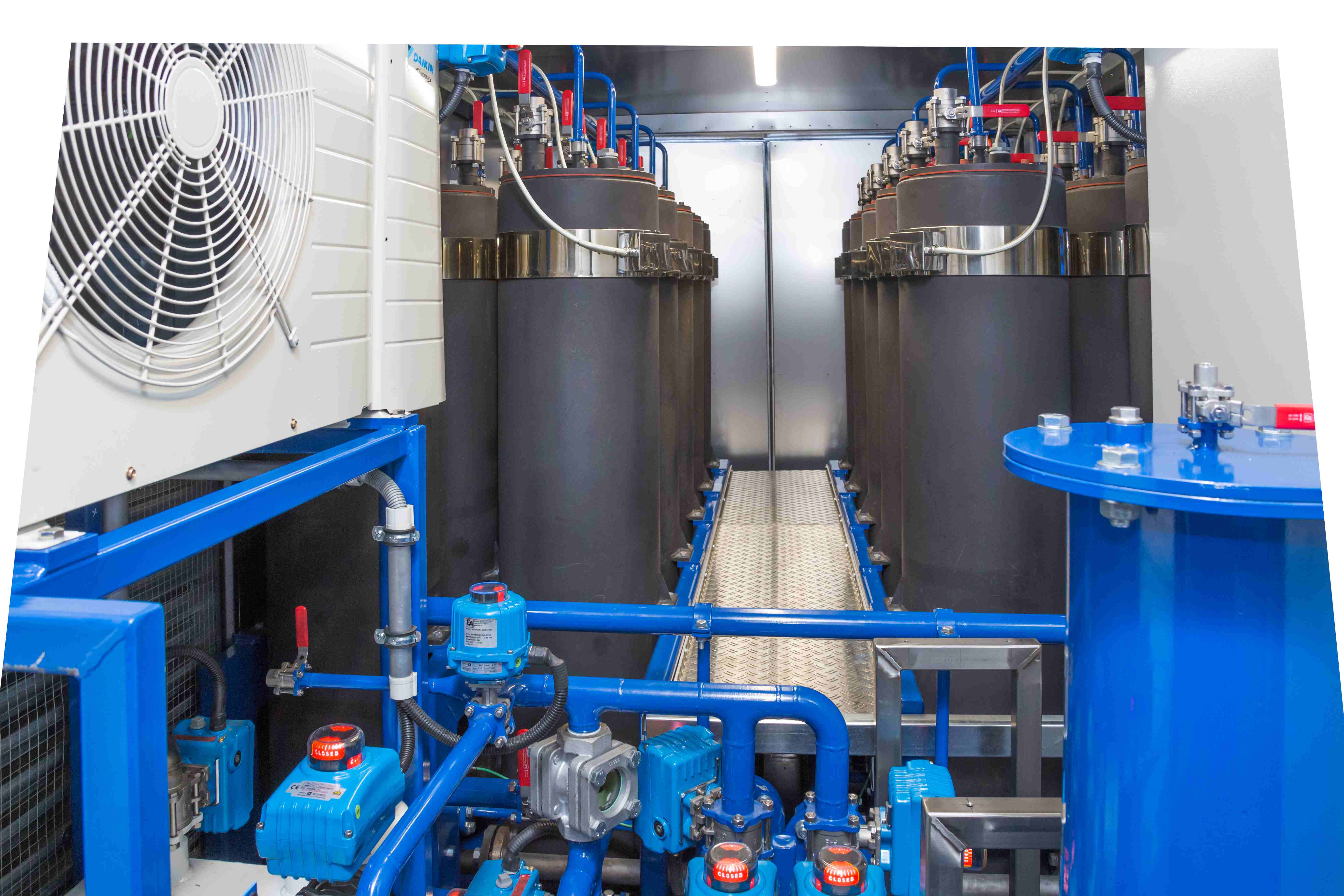Why Regenerated Transformer Oil Is Crucial for Reliable Power Systems
The critical function of regenerated transformer oil in making certain the dependability of power systems can not be overstated. By bring back the oil's integral chemical and physical homes, the regrowth process significantly improves its dielectric toughness and thermal efficiency.
Significance of Transformer Oil
Transformer oil plays an essential duty in the efficient operation of electrical transformers. This specific oil offers multiple functions, mainly as an insulator and coolant, making certain the trusted and safe efficiency of transformer systems. Its dielectric buildings protect against electric discharges, thus guarding the stability of transformer components. By giving thermal conductivity, transformer oil dissipates warm generated throughout electric operation, which is necessary for preserving optimum operating temperatures and lengthening the life-span of the equipment.
Moreover, transformer oil serves as an obstacle against dampness and air, which can lead to oxidation and degradation of transformer materials. The visibility of pollutants in the oil can significantly harm its shielding buildings, causing operational inefficiencies and potential equipment failure. Regular monitoring and upkeep of transformer oil are for that reason critical to ensuring the continued performance of transformers.
The high quality and structure of transformer oil are paramount, as they straight impact the dependability and performance of the electric systems in which they run. Understanding the relevance of transformer oil is vital for energies and industries reliant on durable power framework, highlighting the requirement for efficient administration and regeneration processes to keep oil integrity over time.
Benefits of Regrowth Refine

Additionally, the regrowth process minimizes the destruction of oil, which can lead to increased oxidation and acid development. This not only improves the reliability of the oil however additionally decreases the risk of transformer failings as a result of insulation failure. The enhanced high quality of restored oil permits transformers to run at optimal degrees, eventually causing enhanced energy efficiency and minimized functional costs.
In addition, the regrowth process adds to keeping the total wellness of the power system. Transformers can run much longer without the requirement for oil substitute, therefore lessening downtime and upkeep initiatives. In summary, the regrowth procedure offers substantial advantages by enhancing the longevity and efficiency of transformer oil, guaranteeing that power systems operate dependably and effectively with time.
Ecological Effect and Sustainability
The regeneration procedure of transformer oil substantially reduces environmental worries associated with oil disposal and waste administration. Standard disposal techniques for utilized transformer oil position considerable threats, consisting of dirt contamination and water contamination. By regrowing oil, these risks are markedly lowered, as the procedure reuses existing sources as opposed to adding to throw away accumulation.
In addition, regenerated transformer oil can be recycled in numerous applications, which advertises a circular economic climate. This not just decreases the demand for virgin oil extraction-- a procedure that can be ecologically damaging-- yet additionally conserves natural resources. The regrowth process itself uses sophisticated filtration and filtration strategies that remove hazardous pollutants, guaranteeing that the final product exceeds or fulfills industry standards for efficiency and safety and security.

Enhancing Transformer Performance
Considerable enhancements in transformer performance can be accomplished with making use of regenerated transformer oil. This oil, generated with advanced filtration processes, substantially improves the electric important source insulation homes of transformers. By eliminating pollutants and contaminants that typically endanger efficiency, restored oil makes certain premium dielectric toughness, reducing the risk of electrical failings.
Furthermore, regenerated transformer oil displays improved thermal conductivity, which facilitates reliable heat dissipation. This characteristic is anchor vital for maintaining ideal operating temperature levels, thus prolonging the lifespan of transformers and lessening the probability of overheating - Transformer Oil Regeneration Process. Improved thermal management additionally adds to the total dependability of power systems
Furthermore, the chemical stability of regrowed oil protects against the formation of harsh acids and sludge, which can detrimentally influence transformer parts. By preserving a cleaner interior environment, this oil reduces upkeep needs and extends service periods.
Cost-Effectiveness and Effectiveness
In terms of cost-effectiveness and performance, restored transformer oil provides an engaging alternative to standard oils. The regeneration procedure not just eliminates impurities yet likewise brings back the oil's initial buildings, expanding its practical lifespan. This long life translates into minimized frequency of oil substitute, thus decreasing operational prices gradually.
Moreover, the use of restored oil can dramatically lessen power losses connected with ineffective shielding liquids. Its exceptional dielectric properties make certain optimal performance, boosting the reliability of power systems. Consequently, services gain from lower maintenance prices and reduced downtime, fostering an extra reliable functional environment.

Final Thought
Finally, the regeneration of transformer oil plays a crucial duty in making certain the integrity and performance of power systems. By restoring the vital chemical and physical buildings of the oil, this process boosts dielectric toughness and thermal conductivity, eventually decreasing the danger of insulation malfunction. The ecological benefits associated with recycling sources add to sustainability efforts, while cost-effectiveness and boosted efficiency underscore the requirement of making use of regenerated transformer oil in contemporary electrical infrastructure.
Transformer oil plays an important duty in the reliable procedure of electric transformers. Routine monitoring and upkeep of transformer oil are consequently vital to guaranteeing the proceeded performance of transformers.
The regrowth this hyperlink process of transformer oil dramatically relieves ecological worries linked with oil disposal and waste monitoring. By lengthening the lifecycle of transformer oil, the energy and resources usually consumed in generating brand-new oil are significantly decreased.Significant enhancements in transformer efficiency can be attained through the usage of regenerated transformer oil.
Comments on “What Makes Transformer Oil Regeneration an Industry Must-Have”